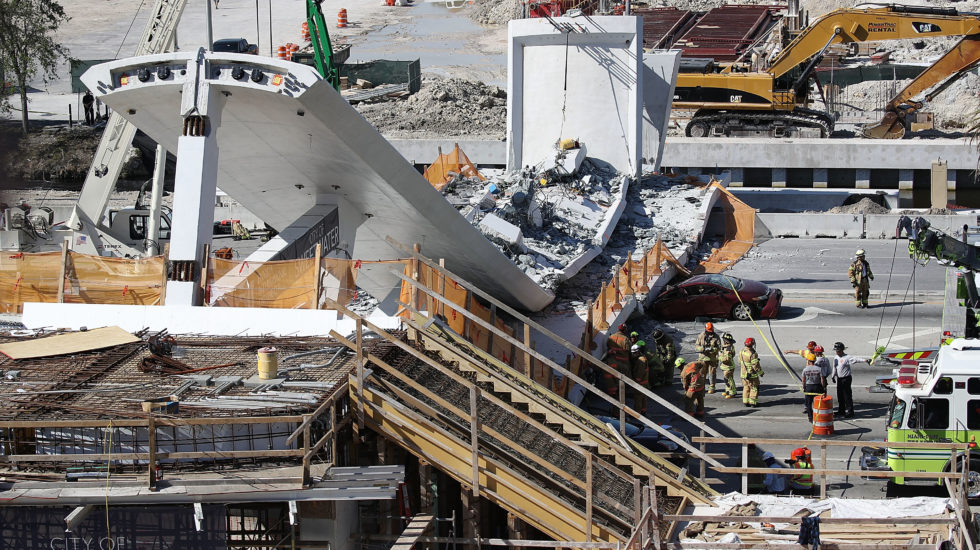The National Transportation Safety Board has found plenty of blame to go around for last year’s deadly pedestrian bridge at collapse at Florida International University in Miami.
It took investigators 19 months to piece together what led to the collapse, which crushed vehicles on the highway below and killed six people and injuring ten more.
Today after a hearing, the NTSB said bridge engineers “severely underestimated demand on the bridge, significantly overestimated bridge’s capacity & incorrectly determined the bridge to be a redundant structure, among other calculation errors.”
But even more concerning is the comment that follows: “another structure failed in this accident, the structure of public safety oversight.” The determination is that the March 2018 incident happened due to negligence by many people and agencies, including those at the state level.
The Miami Herald reports that the NTSB said the “catastrophic failure stemmed from a flawed design with significant errors”:
In addition, investigators found that the university, the Florida Department of Transportation and the project’s engineers and contractors failed to exercise independent judgment, or even common sense, in leaving the busy road underneath the bridge open while a construction crew performed emergency work.
Before the collapse, “abnormal” cracks had been growing and spreading throughout a crucial support junction at the span’s north end, left critically weakened by a major design error … But no one acted to close down the road.
And these weren’t small errors.
NTSB Chairman Robert Sumwalt remarked:
“The cracks were screaming that there was something definitely wrong with this bridge and yet no one was listening… I’ve been on this board for 13 years and I don’t think I’ve seen [an accident] where there’s more finger-pointing between the parties.. And, you know, the finger-pointing is correct … because everyone shares a piece of this accident.”
As for what’s next, the Herald writes:
Victims and their families have largely settled the lawsuits filed after the accident. Now, their attention may turn to whether Miami-Dade State Attorney Katherine Fernández Rundle plans to file criminal charges. The NTSB ruling may shed light on whether the project team’s decision to treat the cracks as minor crossed the line into criminal negligence.
But bringing a criminal case against contractors in a construction accident is difficult under Florida law. Fernández Rundle faced criticism for saying the day after the collapse, before any significant evidence had been gathered, that she saw criminal charges as ”improbable.”



